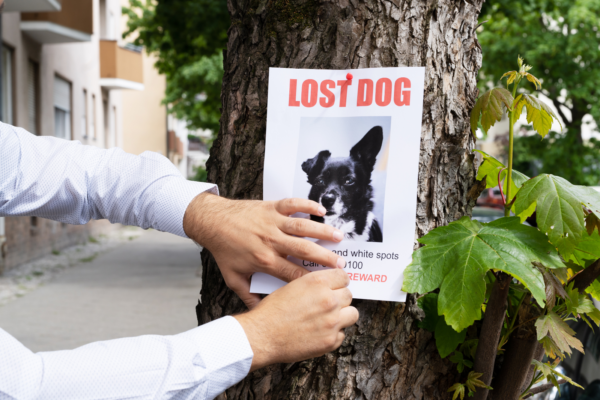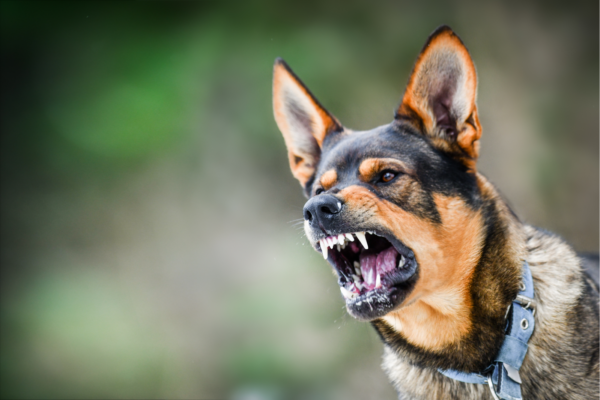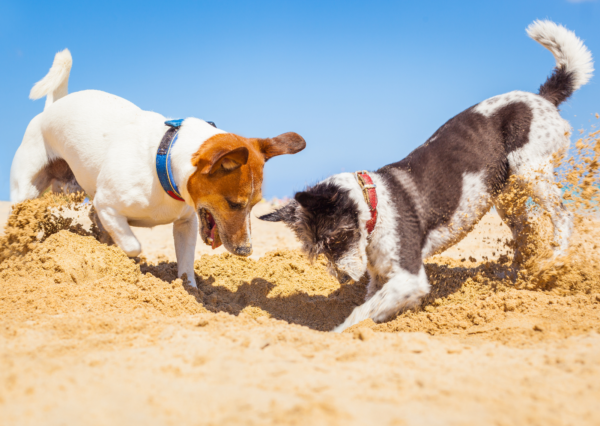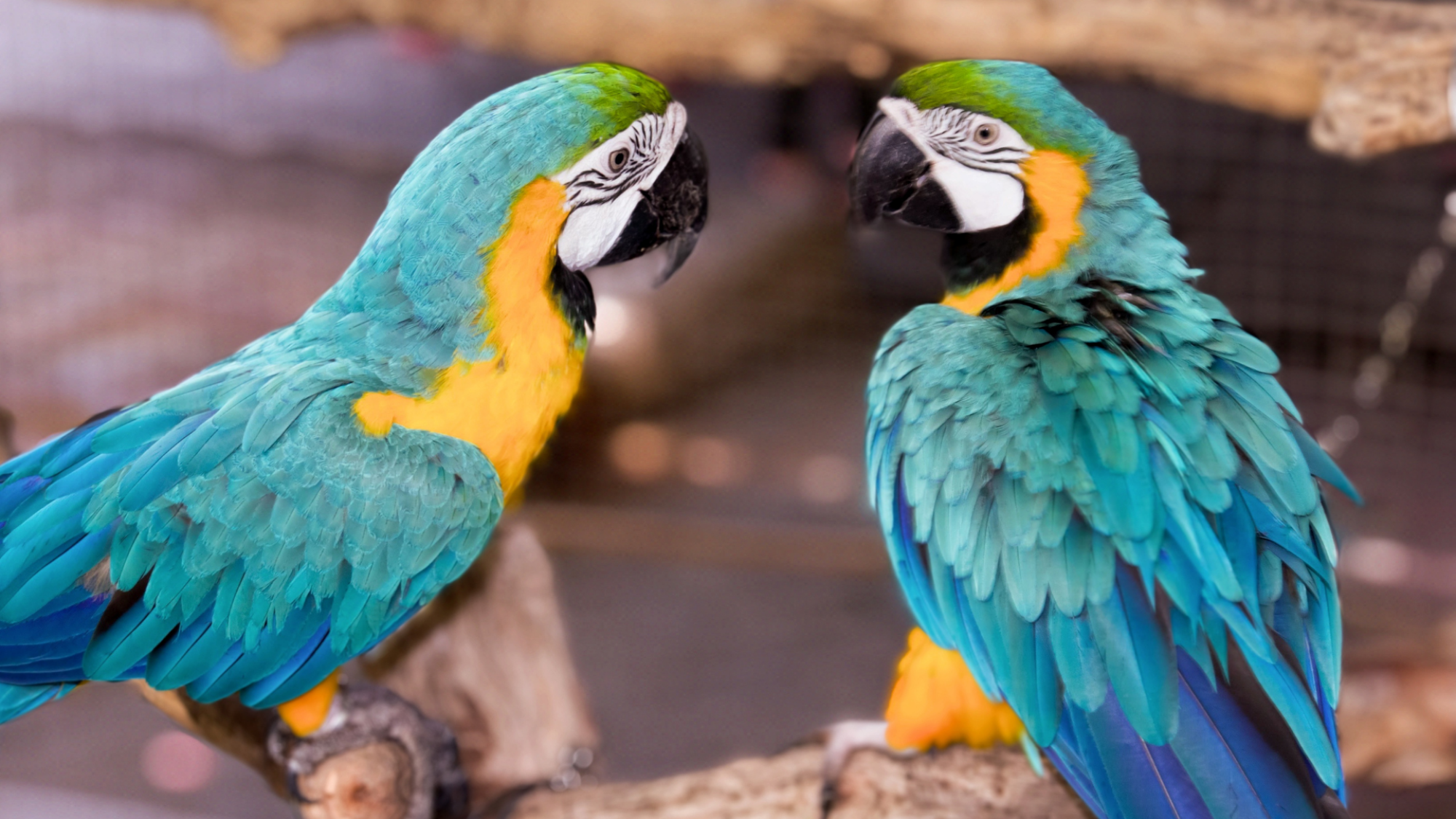What should I do when my parrot bites me?
A recurring question appears at least once a week on my Facebook wall: What should I do when my parrot bites me?
A LOT of advice comes in the comments section of the person who asked the question. The one we find most often is: you must ignore the behavior. There are also: you must punish your parrot, put it back in its cage, give it a tap on the beak, say a big “NO”, etc. I have even read: you have a parrot, it’s normal that he’s biting! The common point to all those comments, all advice given, is to intervene, one way or another, AFTER the bite.
In my opinion, the question “What should I do when my parrot bites me?” should be replaced by “Why did my parrot bite me?” “and more especially” how to avoid next bites?”. To answer these last two questions, let’s review the frequently observed comments:
1. You must ignore the bite.
I understand why this advice is given. Sometimes parrots use their beaks to test objects (texture or structure of a jewel, for example). Paying attention to his bird during this behavior could result in positive reinforcement. I used my beak, and I had attention, what to do the next time I want attention? Use my beak of course! When it comes to real bites, however, I would like, with all my heart, to understand how it might be possible to ignore the behavior of its parrot!
I live with two parrots at home, I work almost every day with parrots, I worked in a zoo in the middle of lots of parrots, and I sometimes assist an avian veterinarian with parrots operations. It would be lying to say that I have never suffered a single parrot bite!
Nevertheless, I think the last one dates back to about 3 years ago (not to mention the little parakeet who smacked my finger a few months ago during his “wrapping” at Dr. Manderscheid’s – https://www.facebook.com/AnimalAcademie/photos/a.1201764163214083.1073741839.1126073194116514/1923734087683750/?type=3&theater ) Here are two bites that have marked me (in every sense of the word): – Miti, the green-winged macaw: While I was working at the Amneville Zoo on parrot training, Miti was standing in front of me on a perch when I reached my hand to her.
My colleague came behind me at the same time. Miti bit my wrist (so hard that I kept a lump for several weeks). Excuse me ladies-gentlemen heroes but the bite of a chloropterus macaw is not compatible with “stay stoic while she rips my arm”. I obviously reacted, first by shouting a “Ahhhhahahahah” of pain, then opening her beak to get rid of it. I left, I was sad and angry. But certainly not against Miti! I did not ask myself if I had done a good choice by screaming or by withdrawing my arm (it was obvious that I was not going to leave my wrist in it, she could have broken it!), I wondered what I had done wrong for Miti to come to such behavior.
My thought was to find out what MY mistake was. After having calmed down (and bandaged my arm), I went to see my colleague and after a long conversation and reflection, we agreed on the management that we would put in place (when I worked with Miti, he would avoid sudden movements in the room, for example). Guess how many times Miti bit me after that? Zero! – Tia, my red-lored amazon: Tia is my chick, my darling, my lover, my daughter. We live together for 8 years in joy and in a good mood.
My birds have an outdoor aviary with direct access from the living room. Every day, when the weather is fine enough, I open my bird’s indoor aviaries, ask them to get on my hand, and take them to the outside aviary through the living room window. That day, like all the others, I opened the two cages, let my girls out of it and then ask Luna first, my blue&gold macaw, to get on my hand. She went on it directly and I put her in the outdoor aviary. When I came back to take Tia, I mentioned that she didn’t go out of her cage like usual.
So I reached my hand inside her cage and…. won a beautiful bite on the finger (you know, at the level of the first phalanx, where the pulpit is very soft!). As for Miti, I withdraw my hand, closes Tia’s cage, went running water on my finger, and thought about my mistake! To be quite honest with me, while the blood ran down the sink, I remembered very well that Tia had warned me before “asking me more specifically” to leave. Why did not I listen to her? Probably because of having a beautiful relationship with her, I had forgotten that she also had a voice and the possibility to say “no”.
After healing my finger (and my pride!), I went back to the cage, opened it, settled on the couch, and waited (…at least 15 seconds!). The little green chick came out, I asked her to get on my hand, she went up, and I dropped her in the outside aviary. So whose fault is it? Mine, of course! Was it too early for Tia? Was she counting the number of toys in her cage and I interrupted her? Didn’t she want to go out right away? Whatever the reason, by not getting out of her cage, putting herself on a perch away from my hand, opening her neck’s feathers, and retracting her pupils, she kindly asked me to wait. As I did not “listen” to her, she found another way to make herself heard. More effective.
2. It is necessary to punish/tap/shoot the parrot
A biting parrot is a parrot who has previously warned that he does not “agree with you”. Before such an extreme as biting, he will have tried everything to make you understand that he says “no”. Examples: Rapid dilatation and retraction of pupils, raised feathers of the neck, open tail feathers, half-open beak, billowing, grunt, raised crest, receding … If we agreed to respect the body language of our parrots from the first signal, we could avoid a very large majority of bites.
Think of us, human beings, during our arguments with our fellow creatures. We start with a firmer tone, then we frown, and eventually, we bite our lips, we look away, we scream, and close our fists, The fight comes only later. Parrots have an EXCELLENT reading of our body language, the least we could do for them is to learn theirs to avoid having to get to an extreme such as a bite. In other words: if the parrot bites it’s because WE lack skills in reading, analyzing, and respecting their body language.
3. A parrot bites, it’s normal!
In his article “Biting, It’s Not For The Birds,” Steve Martin wrote: In the past 15 years or so, I have interviewed many parrot field researchers (personal communications: Brice, February 1994, Munn, July 1998, Gilardi, February 1999, English, November 2000, May, May 15, 2001) about biting and dominance. With a combined total of over 35 years of field research, only two of these researchers have ever seen or heard of a parrot biting another parrot hard enough to make it bleed. Both of these incidences were associated with nest holes…
One incident involved two birds fighting over a nest cavity and the other involved a parrot attacking a young bird in the nest in an attempt to take over the nest.Parrots very rarely bite each other in the wild. However, they often show aggression to protect resources like territory, mates, desirable perches, food items, etc. These interactions are generally limited to body language like the raising of the head feathers or a subtle look of the eye.
Sometimes the aggression escalates to vocal displays such as growling or even more overt body language like thrusting the beak forward in a jousting fashion. In the wild, this body language is usually enough to deter an intruding bird and avoid negative physical contact with the resource holder.
Some parrots in captivity learn to bite to get what they want. This aggression can take many forms: a bird might learn that biting the owner’s arm while he is eating can give him a piece of food. Another bird may learn that a finger bite may allow him to stay longer in his cage or on the shoulder of his owner (even if the goal is to gain only a few seconds). Once the parrot has bitten a person for the first time, he may be on the road to learning that this is a valid way to communicate with humans.
CONCLUSION:
If every parrot owner agreed to take responsibility for every bite he suffered, he would be able to think and work so that it never happens again. A parrot does not come to bite for pleasure. Either he will have been forced because his body language has not been respected, or he will have learned to do so to obtain something from his owner (in a positive reinforcement way: the parrot may learn that biting makes his owner give him attention or in a negative reinforcement way: the parrot may learn that biting makes his owner back up).
So, to answer the question “What is the best reaction to have after the bite of a parrot?” I answer: Take care of your physical injury, heal your ego, accept responsibility for what has just happened, and work so that it never happens again!
Lisa Longo, CPBT-KA Animal Académie
See also other posts:
June 30, 2023

Get Your Lost Dog Back Home Quickly: Follow These 12 Tips for Success
Vacations favor more frequent and longer walks with our furry friends. We travel, visit new places. Summer makes us loosen our brakes and allow our…
June 30, 2023

Managing Aggressive Dog Behavior: Tips for Peaceful Living
Living with an aggressive dog may seem challenging, but it can be peaceful and manageable with the right approach. One key aspect is to remain…
June 30, 2023

Unlocking the Secret to Successful Puppy Socialization: Quality over Quantity
Today, although the topic is very important, I will keep it brief. Socialization is a topic that could fill books or scientific papers. However, today…

